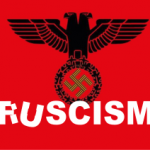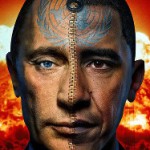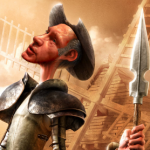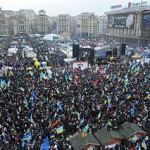
Russia positions itself as an eternal anti-fascist force in Europe. First, with “insignificant help” of the Allies and other soviet republics it defeated the fascist Germany in 1945. Then, it fought against fascist Mikheil Saakashvili in 2008. And now it struggles against fascist Ukraine and… fascist USA! Whatever country Russians fight with it eventually appears to be a fascist one, weird isn’t it? Or, maybe, this is just an insult they use to call their enemies?.. This looks to be more true. Ukrainian and Georgian people, by the way, also call Russians fascists (“ruscists”, to be more exact). So, who is right?.. Both sides? No one?.. Let’s try to investigate this.


